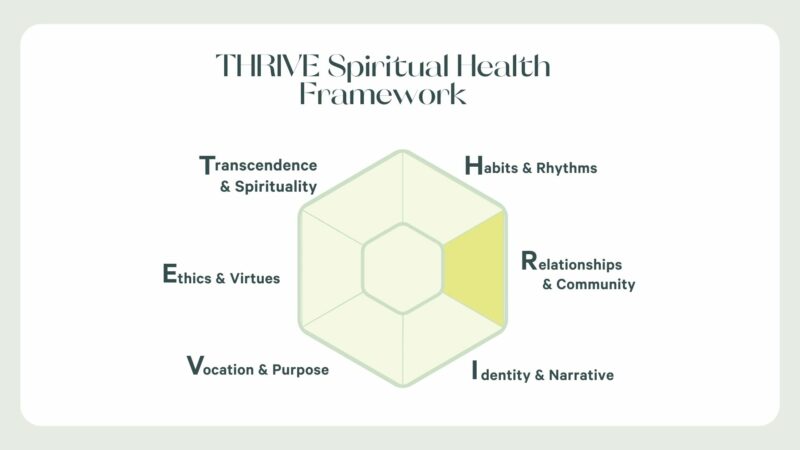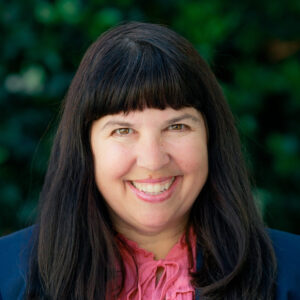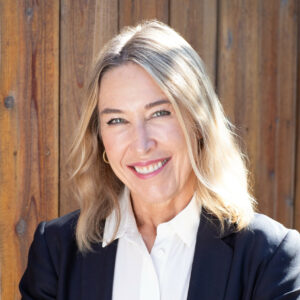Introduction
Grant Purpose
Grant Period: December 1, 2024 – November 30, 2026
Grant Funded By: Interfaith America
Funding from Interfaith America’s Faith & Health Campus Grant will support cross disciplinary campus teams working to embed interfaith competency in a range of health related curricula, build sustainable partnerships with community organizations, and strengthen academic and public understanding about religion as a social determinant of health. Learn More about InterFaith America
The aim of the “Spiritual Health, Thriving, and Chaplaincy” project is to equip spiritually-engaged leaders (e.g., chaplains, clergy, therapists) to leverage psychological resources within religion and spirituality to promote mental health and thriving, as well as to cope with physical health challenges in religiously diverse settings. Fuller’s Thrive Center, MA Chaplaincy (MAC) Program, and Office of Chaplains will partner to create three graduate level courses for chaplains, therapists, and religious leaders; offer campus-community collaborations; produce a video on multi-faith perspectives of spiritual health; and contribute to the interdisciplinary scholarship of spiritual care.
Fuller has been one of the pioneers in psychological research that demonstrates the relationship between physical and mental health. Furthermore, research demonstrates that spirituality and religion are key resources for developing the psychological capacities necessary to thrive. VanderWeele’s (2017) paper, “On the Promotion of Human Flourishing” designated physical and mental health as one of the five domains of human flourishing, and showed that connection with religious communities leads to health, longevity, and better quality of life. A 2023 Fetzer Institute report studying spirituality in the United States showed that 75 percent of people say that prayer gives them a sense of hope, and 53 percent of people say that religion offers them more peace; however, few chaplains and mental health care professionals know how to leverage religion as a resource for mental health. This project aims to apply psychological research to religiously pluralistic contexts.
The Thrive Center synthesized this research into a six-faceted Spiritual Health framework. Intentionally drawing on psychological language, the framework was created for practical application across diverse religious contexts allowing chaplains, clergy, and clinicians to identify key resources available to individuals and communities within their faith tradition to support mental and physical health.
The six-faceted framework spells THRIVE:

Team

Pamela Ebstyne King, Peter L. Benson Professor of Applied Developmental Science and Executive Director of the Thrive Center. Pam’s research focuses on human thriving that contributes to a flourishing world. Her current research includes studies on the nature and function of spiritual development; the role of transcendent beliefs, narratives, and emotions in virtue development; and environments that promote thriving for diverse persons. As an applied developmental psychologist her work combines empirical research, theological perspectives, and community engagement to further understand what contexts and settings enable people to thrive through spiritual health for the greater good. She has conducted research funded by the Biologos Foundation, Fetzer Institute, John Templeton Foundation, and Tyndale House. Pam is an ordained minister in the Presbyterian Church (USA). TheThriveCenter.org translates research into resources that promote wholeness, thriving, and spiritual health, and she is the host of the With & For podcast.

Mary Glenn, Assistant Professor of the Practice of Chaplaincy and Community Development. Mary serves as a faculty member for the MA in Justice and Advocacy degree and co-lead for the intercultural studies/urban ministries and the MDiv chaplaincy concentrations, as well as the co-creator/co-chair of the MA in Chaplaincy (MAC) degree. She is the author of the chapter “Nineveh, God’s Mission of Love, and the Enemy” in the book God’s Mission in the Cities of the Bible (2021) as well as articles for Missiology: An International Review, FULLER, and the Journal of Youth Ministry. A lover of cities, she regularly leads Downtown Los Angeles urban immersions, she has led community development organizations, and worked with collaborative movements and leaders for city transformation. She has served as a certified chaplain for twenty five years with three different agencies, and as a law enforcement chaplain trainer, and holds a certification in Critical Incident Stress Management (CISM). Mary is a frequent speaker on suffering, trauma, the ministry of God’s presence, and God’s shalom.

Jaclyn Williams, Assistant Professor of the Practice of Preaching and Chaplaincy. Jaclyn’s current interests include incarnational and embodied preaching, performing artist training as spiritual practice, and resiliency resources in pastoral and spiritual care practice. She is an American Baptist-ordained minister and an Alliance of Baptists-endorsed chaplain. She has been awarded the Parish Pulpit Fellowship (Fuller Theological Seminary), the Excellence in Community Service Award (Wheeler Avenue Baptist Church), and Emerging Artist Award (The Links Incorporated). She has contributed articles to the Haymanot Journal, which is the official publication of the Society of Gospel Haymanot. She is a member of the American Academy of Religion, the Academy of Homiletics, the Association of Professional Chaplains, and the Alliance of Baptists.
Learn More about Fuller’s Master of Arts in Chaplaincy (MAC) program.

Jilleen Westbrook, Senior Director of the Thrive Center. Jill joined the staff of the Thrive Center for Human Development in 2022. She earned her Ph.D. in Economics from Claremont Graduate University and has taught at Temple University, University of Southern California (USC), and the Claremont Colleges. Her academic work involved empirical investigations of psychological effects on markets that result from policy decisions. Before joining, the Thrive Center, she worked as a consultant. Dr. Westbrook has long been interested in issues of faith and well-being, particularly in the practices that encourage mental, physical, and spiritual health.
Project Activities
Curricular Development and Design
Spiritual Health & Thriving (Dr. Pam King, taught Spring 2026): This graduate level course is based on a theologically and psychologically informed understanding of human thriving that involves a strength-based approach to becoming whole with and for others and a greater purpose in ways that contribute to flourishing societies. The majority of the course focuses on a six-faceted Spiritual Health Framework that highlights psychological resources for wellbeing, resilience, and thriving within religion and spirituality.Students will reflect and develop a plan for their own spiritual health and will be responsible for applying the framework to case studies in at least two different faith settings other than their own.
PM563 – Chaplaincy Engagement and Spiritual Care (Dr. Jaclyn Williams, Taught Winter, 2025 & 2026): This graduate course will incorporate Thrive’s Spiritual Health Framework into student learning through field integration and case study. This interdisciplinary course will guide students in integrating theology, theory, and practice within culturally aware and relevant spiritual care. Students will also create and implement a practical framework for maintaining the holistic well-being of the caregiver.
SF522 – Working Towards Resiliency, Wellness, and Hope for the Chaplain (Dr. Mary Glenn, Spring 2025, 2026): This graduate level course will serve as the capstone of the two-year Master of Arts in Chaplaincy (MAC) degree program. The Thrive Spiritual Health Framework will be a key framework presented to the students for understanding of spiritual practices that support their wellbeing and health through their service as chaplain.
Speaking Engagements
Brigham Young University (BYU)- 21st Annual Marjorie Pay Hinckley Lecture
Feb 13, 2025
“Becoming Whole Through Spiritual Health”
The mental health crisis and loneliness epidemic have captured this country’s attention. But what about the spiritual health crisis in this time when young people have moved away from formal religion?
Dr. King is applying scientific methodology from the discipline of psychology to determine and study aspects of religion that are helpful for well-being. Her theologically and psychologically informed approach to thriving involves becoming whole with and for others and God.
Christian Association for Psychological Studies (CAPS) International Conference
Climbing to New Heights: Growth and Transformation in the Integrated Professional
Denver, March 20-22, 2025
- Dr. King’s Presentation: “Spiritual Health for Thriving With & For Others“
Vermeer Conference
Iowa, April 15, 2025
“Chaplaincy Resiliency and Wellness (Holistic Care for the Chaplain and the People They Accompany)”
Dr. Mary Glenn and Dr. Jaclyn Williams presented at the Vermeer Charitable Foundation‘s Chaplain Connect conference. This conference focused on the ministry of chaplains in the work place, in hospitals, in the military, in education, and more. Dr. Glenn and Dr. Williams provided three modules based on the theme, “Chaplaincy Resiliency and Wellness,” with time for small group & large group discussion between each session.
Story Table on Spiritual Health and Religious Pluralism
Upcoming
Interdisciplinary Paper on Spiritual Health from a Religiously Pluralistic Perspective
Upcoming